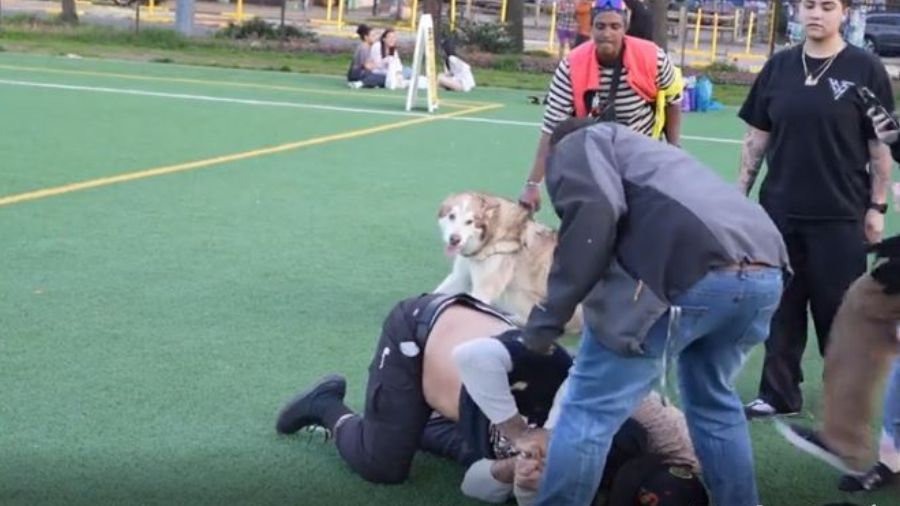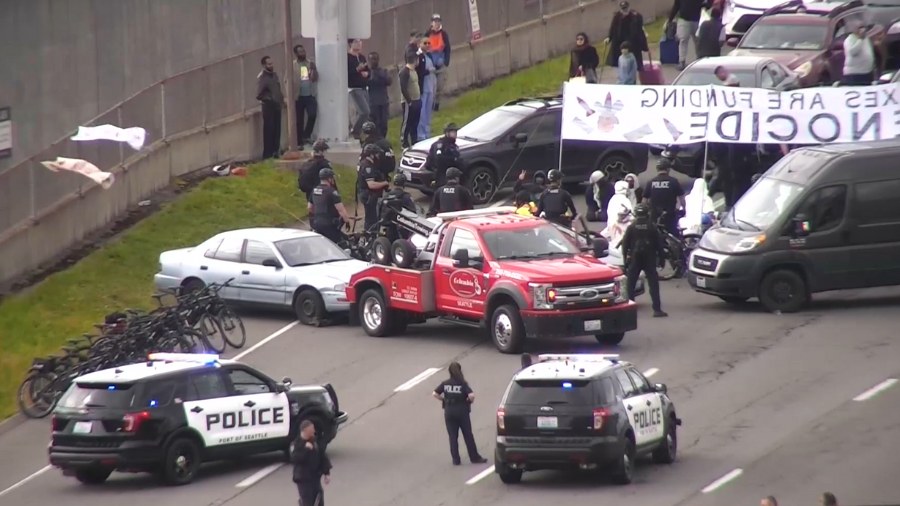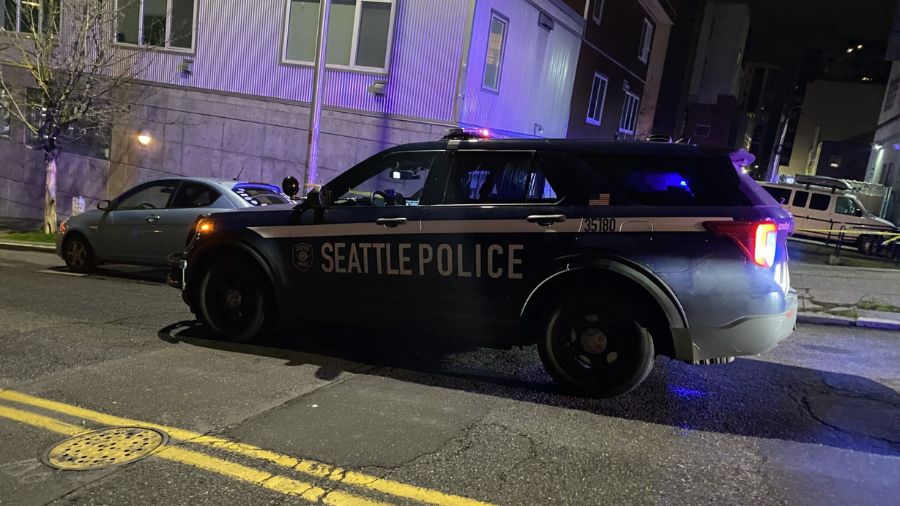What we can do now to help COVID-19 restrictions relax sooner
Feb 24, 2021, 10:00 AM

A sign asks people to keep six feet of distance in downtown Newark on Nov. 25, 2020 in Newark, New Jersey. (Photo by Spencer Platt/Getty Images)
(Photo by Spencer Platt/Getty Images)
As the United States has now reached more than half a million deaths from COVID-19, vaccine manufacturers are trying to ramp up supply to protect more of us from the virus.
Why some restaurants could still struggle if state relaxes indoor dining cap
One of the biggest questions KIRO Radio’s Gee and Ursula Show has been hearing is what is allowed after getting vaccinated. The answer to that question, as virologist and weekly guest of the show Dr. Angela Rasmussen explains, depends on a number of different factors.
“This is an emerging area of research, and this is something that doesn’t depend entirely on whether the vaccines can prevent infection and thus reduce transmission. It does depend on that in part,” she said. “It also depends on how much we can get transmission down in the community, and also how many people are actually willing to get vaccines once they’re available to everybody.”
“So this is something where there’s a lot of different variables in play that are really going to determine when we can start to relax some of the precautions that we’re taking and when we can fully relax them,” Rasmussen added.
Her own opinion is that if more people are vaccinated in the coming weeks and months, and that the precautions we know work continue, and cases keep trending downward, a relaxation of the restrictions could come as soon as late spring or early summer.
“But it really does depend on a lot of what happens between now and then,” she said.
Additionally, the vaccines themselves, she explained, were designed to stop disease and not infection.
“They were designed to target this virus and to train your immune system to fight it,” she said. “The clinical trials were conducted where they looked at symptomatic COVID-19 as the primary endpoint. That means that’s what the trials were designed to evaluate.”
“They weren’t designed to evaluate whether or not the vaccine can protect against infection, because essentially, that would have made the trials a lot more time consuming and resource consuming,” she added. “And we wanted an answer about how well they could protect against COVID-19, which is really one of the more important features of the vaccine. Because if you can protect against COVID-19,
then you’re going to be keeping people out of the hospitals. You’re going to be saving people’s lives.”
Now that the vaccines have been authorized for use, Rasmussen says, it’s important to keep looking at how well they can prevent transmission.
“Fortunately, all of the data so far suggests that they do [prevent transmission],” she said. “We just really don’t know how much and how effective they are at population scale. So while that data is coming out, people should continue to use precautions. But they should also keep in mind that we’re not going to be using those precautions forever, especially if people are diligent about using them now and that they are able to get vaccinated as soon as possible.”
COVID variants may not be more deadly, but virologist says ‘avoid contracting it‘
The same strategy will work for variants, Rasmussen added, in that if people take precautions to reduce their exposure risk, we can deal with any current or future variants.
“So people should be concerned about [variants], and we should do further studies on it, but that doesn’t necessarily mean that we should abandon all hope or think that we are about to enter another period of cases on the rise, and more hospitalizations, and more deaths,” she said. “We can prevent that by using caution now.”
Listen to the Gee and Ursula Show weekday mornings from 9 a.m. – 12 p.m. on KIRO Radio, 97.3 FM. Subscribe to the podcast here.













